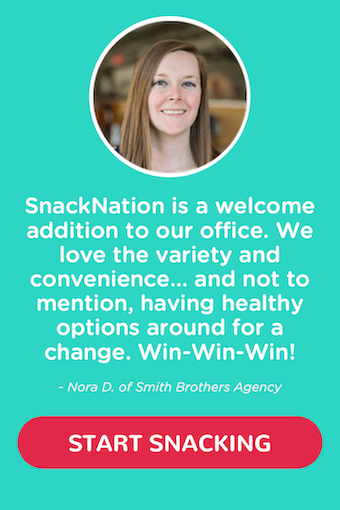The “hustle-till-you-make it” culture isn’t everything it’s cooked up to be, especially for entrepreneur mental health.
For every entrepreneur who makes it to Year 3 as a profitable enterprise, there are hundreds more who’ve fallen to the wayside, with a dozen dreams, and a million hopes crushed underfoot.
While everybody’s ready to talk about the challenges of setting up and running a business, nobody likes to talk about the mental toll entrepreneurship exacts on its unsuspecting victims.
If you’ve been struggling mentally and emotionally with the challenges of running a business, you’re not alone. Besides, optimizing entrepreneur mental health is a skill that can be learned and maintained.
Here’s what you need to know.
Page Contents (Click To Jump)
Entrepreneurship and Mental Health
 Entrepreneurs often face a unique set of mental health challenges driven by a fast-paced lifestyle and routinely having to do many things on their own in the initial stages of setting up their own business.
Entrepreneurs often face a unique set of mental health challenges driven by a fast-paced lifestyle and routinely having to do many things on their own in the initial stages of setting up their own business.
There’s the stress. But, over and beyond that, are the long hours, the lack of any real social life, and the need to maintain the facade of having it all together without needing anyone else. The pressure of image management can leave many entrepreneurs unwilling and unable to share personal struggles, burnout, and the underpinnings of mental illnesses like depression and anxiety.
It’s not uncommon for business owners to strongly identify with their fledgling enterprises so much so that even the smallest of setbacks can feel like a ginormous reflection of them and a perception of personal failure.
The data backs this up.
In a self-report survey, it was found that entrepreneurs experienced 30% more depression, 29% more ADHD (Attention Deficit Hyperactivity Disorder), 12% more substance abuse, and 11% more bipolar disorder than non-entrepreneurial participants. Even more chillingly, 32% of the entrepreneur participants reported having two or more mental health conditions, while 18% reported having three or more mental health conditions.
The good news is, there’s a decided shift toward talking about mental health among entrepreneurs. And reaching out for timely professional help at the first signs of distress is no longer taboo.
But are there things you can do in the meantime on your own to improve your state of mental and physical wellness? Absolutely, there is!
5 Tips for Improving Entrepreneur Mental Health

In this section, we’ll cover five ways you can work through your mental health struggles with practical examples of how you can implement them straight away.
1. Prioritize Self-Care 🛀
Self-care requires you to actively embrace thoughts, behaviors, and actions to improve or maintain good mental and physical health. For most entrepreneurs setting aside any time for themselves can seem self-indulgent and not in a good way.
But in the absence of a consistent self-care routine, you’re more likely to suffer from the after-effects of burning the midnight oil. Think stress, fatigue, mental fog, and physical aches and pains. If this is you, it’s time to self-care!
⭐ One tip you can implement today to prioritize self-care: Set aside at least 10 minutes a day to do something for you that doesn’t involve your business. Practice mindfulness, speak positive affirmations, take up a hobby, or spend time with friends or family members. During this time, your laptop stays shut, and your mobile is switched off or on silent.
2. Establish Boundaries ❌
Entrepreneurs often overextend themselves to ridiculous lengths to get new clients and hold onto existing ones, wearing themselves super-thin in the process. One of the chief ways this manifests in the workplace is always being on call for your clients. If you’re answering messages, texts, and phone calls late into the night, when it’s not urgent, and the rest of the world is asleep, it’s time to establish boundaries.
⭐ One tip you can implement today to establish effective boundaries: Set aside specific times for client communications. Establish one primary mode of communication to do so. Discuss reasonable timeframes for reverts. Explain what constitutes an emergency and how you can be contacted in case of one.
🔥 Pro-Tip from FounderIV: Most clients are understanding of boundaries once these are set. Set up clear boundaries in the beginning so clients have the right expectations of your availability.
3. Seek Support and Connect 🤝
People aren’t designed to function as solitary individuals. Human beings need to be a part of a community. Entrepreneurs often hesitate to seek help when it comes to mental health problems because of a fear of being seen as “less than able” or capable. The fact is entrepreneurs routinely struggle with moments of self-doubt, lack of confidence, and persistent stress.
⭐ One tip you can implement today to connect and seek support: Spend some time daily to connect with your cheerleaders – they can be your friends or family members or even your beloved pets. If you’re struggling with a specific mental health challenge, there’s no shame in seeking professional support. Make that call today.
4. Practice Mindfulness and Stress Reduction 🧘
Mindful techniques are designed to help you slow down so you’re concentrating on what’s in front of you instead of what’s going to happen in the future. Practicing mindfulness and stress reduction techniques goes a long way toward managing a restless mind that constantly worries about getting things done right.
⭐ One tip you can implement today to introduce mindfulness into your life: Download any of the apps available online with good reviews designed for mindfulness and stress reduction. Make time to practice at least one protocol daily for 10 to 20 minutes. You can always increase the duration once you get comfortable with the daily routine.
🔥 Pro-Tip from FounderIV: Entrepreneurial mindfulness and stress reduction protocols often give the best results over time. Think of these as a long-term investment. Consistent practice can translate into an increased ability to manage stress and feel calm and in control.
5. Embrace Failure as a Learning Opportunity 🤓
Much of the mental health pitfalls of entrepreneurship can be traced back to unreasonable expectations of both ourselves and others. It is entirely impossible to do everything perfectly every single time. As a startup founder or entrepreneur, you deserve some leeway to make mistakes. At the same time, learning from your mistakes and being willing to make a go of it, is the hallmark of truly successful entrepreneurs.
⭐ One tip you can implement today to be kinder to yourself: Identify one mistake that has profoundly impacted your self-confidence. Look at the broader picture. Review what went wrong and come up with concrete steps to ensure you’re getting the expected results the next time around. The future can be as bright as you make it.
7 Resources for Entrepreneur Mental Health

Aside from the self-help tips we shared above, there are plenty of resources online that you can leverage to improve an entrepreneur’s mental health. In this section, we’ll cover seven different resources you can rely on to improve mental health and generally boost how efficiently you run your business.
1. FounderIV Newsletter
The FounderIV Newsletter is the brainchild of the very hustle-culture-averse Sean Kelly who’s raised over $50M+ and co-founded three 8-figure businesses to date (he’s already building his fourth as we’re writing this!).
The newsletter is designed to be a resource that entrepreneurs, business owners, founders (and co-founders) can leverage to optimize their mental and physical health, boost personal wealth, and gain the freedom that comes from having a successful business. It’s your IV (Intravenous Drip) for optimal work-life balance.
✅ Why this is a good resource to improve entrepreneur mental health: FounderIV specializes in weekly nuggets of entrepreneurial wisdom in the form of performance tips to boost your performance, increase your efficiency, and insights to build wealth, without having to conform to the life-draining hustle culture.
🤷 This might not be right for you if: You’re a traditionalist who thinks that the more hours you spend at work, the bigger the tradeoff. It’s a recipe for fast burnout and a whole host of other stress-related physical challenges like headaches, body pains, fatigue, and exhaustion.
⭐ Subscribe for free here.
2. Coa
Coa is a proudly self-professed “gym for mental health.” If buying private mental health sessions with the most in-demand and result-driven mental health professionals is eating into your bottom line, your savings, and your sanity, this resource is worth checking out.
For a small monthly fee ($49), you can access mental health and emotional fitness routines that promise to “increase self-awareness, resilience, mindfulness, and more.”
✅ Why this is a good resource to improve entrepreneur mental health: You can do a free trial before you commit to a paid plan to start with. The free trial is a 15-minute live class, led by a live therapist (a human!), complete with actionable takeaways. In general, for the monthly fee, you have access to live on-demand emotional fitness regimens, concrete action plans, interactive exercises, and a community that you can be a part of.
🤷 This might not be right for you if: You’re old-school and online sessions just aren’t your thing. We get it.
⭐ Check it out here.
3. The Anxious Achiever
“Anxious Achiever.” We felt that in our bones. Spearheaded by LinkedIn, and hosted by the intrepid Morra Aarons-Mele (speaker, author, and herself an entrepreneur), this podcast is designed to navigate the intersection between mental health and work and help you figure out how to do both. Better.
Just some of the relatable topics that have recently been covered in the podcast include:
- “We all experience class at work (and why we should talk about it).”
- “Want to run a good company? You can’t ignore menopause anymore.”
- “Am I too old for this role? LinkedIn Live.”
✅ Why this is a good resource to improve entrepreneur mental health: Aarons-Mele doesn’t hesitate to dig through and pick apart topics that are often hushed up in entrepreneurial circles for fear of being misunderstood or unheard. Especially if you struggle with entrepreneurially “taboo” mental disorders and women’s mental health challenges that go beyond depression and anxiety.
🤷 This might not be right for you if: You’re more visually inclined and lack the focus for audio content.
⭐ Check it out here for Apple users.
🔥 Pro-Tip from FounderIV: The first step towards better entrepreneurial mental health is a willingness to talk about it. Get involved in the conversation.
4. Calm
The aptly named, Calm, is a subscription-based mental health app designed with one primary area of focus – bringing back the calm into your life.
Calmness, incidentally, isn’t necessarily an isolated feeling. Having a sense of calm often translates to less stress, better sleep, and mindfulness as you go about your day. In that sense, Calm means business when it comes to providing you with ample resources to help you achieve all of this and more.
✅ Why this is a good resource to improve entrepreneur mental health: Calm excels in providing research-backed and habit-building tools designed to help you optimize your mental well-being. It provides personal and corporate plans which include stress management tools, sleep meditations, daily habit-buildings, and even mindful movement videos to help you get more physically in shape.
🤷 This might not be right for you if: You’re looking for a free resource and aren’t willing to commit to time daily to work with the app’s tools.
⭐ Check it out here.
5. Founders First
Founders First is a premier membership-based peer group and support network-style program for entrepreneurs focused on peak performance as well as optimized wellness. Think of Founders First as a more focused and intensive transformational journey involving initial training followed by accountability groups and exhaustive resources to help you stay on target. Membership is by application only and small cohorts are accepted into the program a few times a year.
✅ Why this is a good resource to improve entrepreneur mental health: It’s an entire system designed for entrepreneurs who want to feel the fear and do it any way but not at the cost of mental health.
🤷 This might not be right for you if: You’re not ready for more intense and focused sessions in small tight-knit communities. If you’re just skimming the waters, try any of the other options listed in this article or one-on-one coaching/therapeutic support.
⭐ Check it out here.
🔥 Pro-Tip from FounderIV: If you’re just starting to explore the many mental health support options available to you, start small with apps and tailor-made coaching and counseling support. You can do more intense and laser-focused sessions once you’ve established a solid foundation of self-care and peak performance routines.
6. The Venture Center Mentorship Community
The Venture CenterMentorship Community is an Arkansas-based mentorship initiative that supports small business owners who want to convert to high-growth businesses. Expect two types of programs – one wholly focused on women entrepreneurs and another a monthly meetup for a broader section of entrepreneurs and professionals.
The success of the Venture Center lies in its community-driven model. It’s a force for positive change. Having a group of people to fall back on, can provide a tremendous amount of support for small business owners to successfully navigate their business and any mental health struggles.
✅ Why this is a good resource to improve entrepreneur mental health: Small business owners need a different level of support due to their unique needs. The Venture Center is a step forward in the right direction for small businesses that need that extra hand-holding and emotional support to reach for the stars.
🤷 This might not be right for you if: You’re already a large and well-established business, or not currently based in Arkansas.
⭐ Check it out here.
7. Founder Mental Wealth
Founder Mental Wealth is dedicated to creating a legacy of founder mental wealth for traditionally underrepresented sections of society – Black, Indigenous, People of Color, Women, and LGBTQIA startup founders. The brand was founded by Anthony Ware, a former latchkey kid from Indianapolis who currently builds businesses and inspires others from the community to do so.
Ware looks at mental wealth as deposits of intentional thoughts, behaviors, and experiences that positively impact the founder/business owners, their employees, as well as the larger community. Think about working with a therapist, connecting to nature, and spending time with family and friends.
✅ Why this is a good resource to improve entrepreneur mental health: Founder Mental Wealth serves a community that is often largely ignored by mainstream American society, providing community-focused in-depth mental health research and support.
🤷 This might not be right for you if: If you’re not traditionally a black, indigenous, POC, woman, or LGBTQIA startup founder. Do check out all of the other resources that are available to you elsewhere in this article.
⭐ Check it out here.
People Also Ask These Questions About Entrepreneur Mental Health
Q: How do I manage stress and pressure as an entrepreneur?
- A: As an entrepreneur, it’s important to build resilience against stress by taking care of your physical and mental health through regular exercise, healthy eating, and activities you enjoy. At the same time, learn to manage the pressure of running a business by setting realistic goals and timelines, building a strong support network, taking small breaks, and focusing your energy only on what you can control. Practicing mindfulness and self-care will help you stay focused and balanced through stressful times as an entrepreneur.
Q: How can I balance entrepreneurship’s emotional highs and lows?
- A: As an entrepreneur, remember that emotional highs and lows are normal, so focus on building resilience through self-care, mindfulness, and maintaining perspective during challenging times. Finding a support network of mentors or other founders that you can openly discuss the rollercoaster of emotions with can also help you stay grounded and focused. Setting intentional daily routines and small goals will also bring stability when riding entrepreneurship’s waves of excitement and stress.
Q: Are specific mental health challenges unique to entrepreneurs?
- A: Yes, entrepreneurs face amplified rates of mental health issues like depression, ADHD, bipolar disorder, and substance abuse due to the high-pressure, fast-paced, and often isolating nature of starting a business. Managing financial instability, long hours, numerous responsibilities, and decision fatigue are also unique factors that entrepreneurship brings, requiring founders to be especially proactive about self-care through community-building, resilience training, and stress management.
Q: Can seeking therapy or counseling benefit entrepreneurs?
- A: Seeking therapy or counseling can provide entrepreneurs with an invaluable outlet to process the singular pressures of founding a business with an impartial, trained professional, enabling better mental health and clarity of judgment.
Q: How can I create a mentally healthy work environment for my team?
- A: Promoting work-life balance by avoiding excessive overtime and encouraging paid time off allows teams space for self-care. Fostering social connections, recognizing achievements, clearly defining roles, and leading with empathy build an emotionally supportive culture. Maintaining open dialogue around mental health diminishes stigma, and offering access to employee wellness programs and counseling conveys that psychological wellness is a priority.















